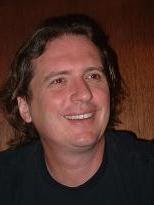Mind Over Golf
"Competitive golf is played mainly on a five-and-a-half-inch course, the space between your ears," stated golf legend Bobby Jones and is his statement is still applicable some fifty years later. Golf is a game that requires as much if not more mental talent than physical because of the three opponents each golfer faces.
The most obvious opponent is the other players. Although golf is unlike hockey or basketball where other players actively interfere with your play, many report that the behavior of players does have an effect on them. This is particularly true for the “trash talker" type who tries to compensate for his lack of skill by distracting you from your talents. Are you able to block this kind of noise out?
The second adversary is a person you will probably never meet-the course designer. The design of a golf course is based on a solid psychological principle known to every hypnotist, that being that the mind cannot imagine a negative. (For example: the harder you try to not think about a pink elephant, the more prominent he becomes.) Water and sand traps are intended to distract you from your intended target and have you focus your attention (and your ball) on them instead. The ability to focus the mind on what you want rather than what you want to avoid is a critical mental talent for any golfer.
The final opponent is the golfer himself. A lack of confidence will have a golfer dwell on bad shots while discounting the good ones. What this does is imprint and reinforce less than stellar performance on the nervous system. Yet you cannot make an amazing shot unless you have the ability. Do you have healthy sense of expectation that your level of play is going to steadily improve?
Tension, both mental and physical, can also keep you from playing at your best. Most athletes are looking for a state of mind and body called “the zone," where high performance seems to flow effortlessly.
There are two primary elements of the zone. It is known in sports physiology that the more fine coordination your sport requires (like golf), the more relaxed you want to be. Yet simple relaxation is not enough. The golfer also wants to be in a relatively happy frame of mind since a person can be in low-energy state yet be in a bad mood. Relaxed and happy, put those two pieces together and you will play at your best.
If you are interested, you can learn more about Mind Over Golf by visiting the New Jersey Hypnotist Web Site.
The most obvious opponent is the other players. Although golf is unlike hockey or basketball where other players actively interfere with your play, many report that the behavior of players does have an effect on them. This is particularly true for the “trash talker" type who tries to compensate for his lack of skill by distracting you from your talents. Are you able to block this kind of noise out?
The second adversary is a person you will probably never meet-the course designer. The design of a golf course is based on a solid psychological principle known to every hypnotist, that being that the mind cannot imagine a negative. (For example: the harder you try to not think about a pink elephant, the more prominent he becomes.) Water and sand traps are intended to distract you from your intended target and have you focus your attention (and your ball) on them instead. The ability to focus the mind on what you want rather than what you want to avoid is a critical mental talent for any golfer.
The final opponent is the golfer himself. A lack of confidence will have a golfer dwell on bad shots while discounting the good ones. What this does is imprint and reinforce less than stellar performance on the nervous system. Yet you cannot make an amazing shot unless you have the ability. Do you have healthy sense of expectation that your level of play is going to steadily improve?
Tension, both mental and physical, can also keep you from playing at your best. Most athletes are looking for a state of mind and body called “the zone," where high performance seems to flow effortlessly.
There are two primary elements of the zone. It is known in sports physiology that the more fine coordination your sport requires (like golf), the more relaxed you want to be. Yet simple relaxation is not enough. The golfer also wants to be in a relatively happy frame of mind since a person can be in low-energy state yet be in a bad mood. Relaxed and happy, put those two pieces together and you will play at your best.
If you are interested, you can learn more about Mind Over Golf by visiting the New Jersey Hypnotist Web Site.


<< Home